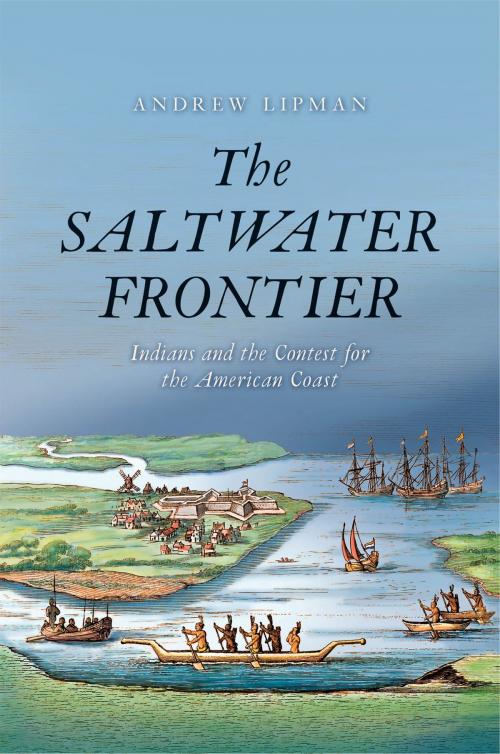The Saltwater Frontier
Indians and the Contest for the American Coast
Nonfiction, History, Americas, United States, Colonial Period (1600-1775), Native American| Author: | Andrew Lipman | ISBN: | 9780300216691 |
| Publisher: | Yale University Press | Publication: | November 3, 2015 |
| Imprint: | Yale University Press | Language: | English |
| Author: | Andrew Lipman |
| ISBN: | 9780300216691 |
| Publisher: | Yale University Press |
| Publication: | November 3, 2015 |
| Imprint: | Yale University Press |
| Language: | English |
Andrew Lipman’s eye-opening first book is the previously untold story of how the ocean became a “frontier” between colonists and Indians. When the English and Dutch empires both tried to claim the same patch of coast between the Hudson River and Cape Cod, the sea itself became the arena of contact and conflict. During the violent European invasions, the region’s Algonquian-speaking Natives were navigators, boatbuilders, fishermen, pirates, and merchants who became active players in the emergence of the Atlantic World. Drawing from a wide range of English, Dutch, and archeological sources, Lipman uncovers a new geography of Native America that incorporates seawater as well as soil. Looking past Europeans’ arbitrary land boundaries, he reveals unseen links between local episodes and global events on distant shores.
Lipman’s book “successfully redirects the way we look at a familiar history” (Neal Salisbury, Smith College). Extensively researched and elegantly written, this latest addition to Yale’s seventeenth-century American history list brings the early years of New England and New York vividly to life.
Lipman’s book “successfully redirects the way we look at a familiar history” (Neal Salisbury, Smith College). Extensively researched and elegantly written, this latest addition to Yale’s seventeenth-century American history list brings the early years of New England and New York vividly to life.
Andrew Lipman’s eye-opening first book is the previously untold story of how the ocean became a “frontier” between colonists and Indians. When the English and Dutch empires both tried to claim the same patch of coast between the Hudson River and Cape Cod, the sea itself became the arena of contact and conflict. During the violent European invasions, the region’s Algonquian-speaking Natives were navigators, boatbuilders, fishermen, pirates, and merchants who became active players in the emergence of the Atlantic World. Drawing from a wide range of English, Dutch, and archeological sources, Lipman uncovers a new geography of Native America that incorporates seawater as well as soil. Looking past Europeans’ arbitrary land boundaries, he reveals unseen links between local episodes and global events on distant shores.
Lipman’s book “successfully redirects the way we look at a familiar history” (Neal Salisbury, Smith College). Extensively researched and elegantly written, this latest addition to Yale’s seventeenth-century American history list brings the early years of New England and New York vividly to life.
Lipman’s book “successfully redirects the way we look at a familiar history” (Neal Salisbury, Smith College). Extensively researched and elegantly written, this latest addition to Yale’s seventeenth-century American history list brings the early years of New England and New York vividly to life.















